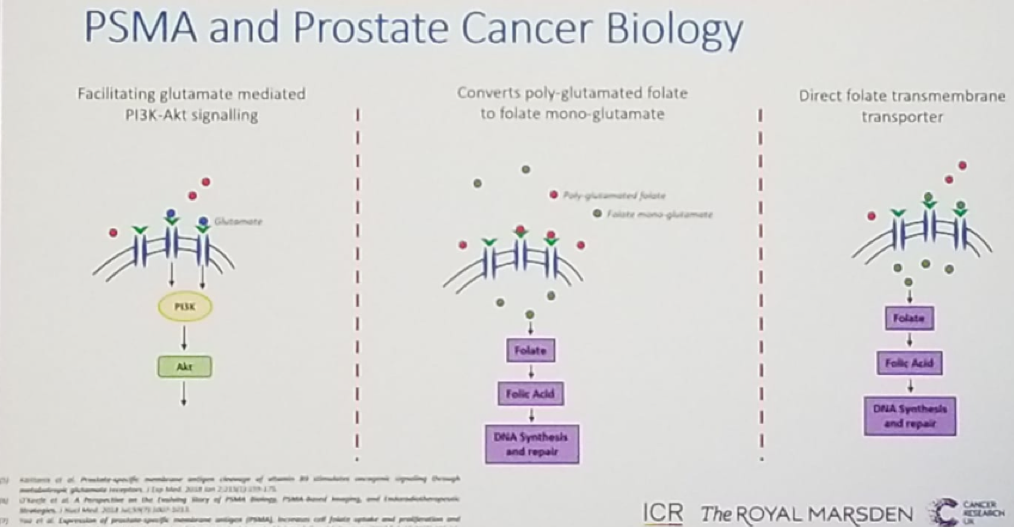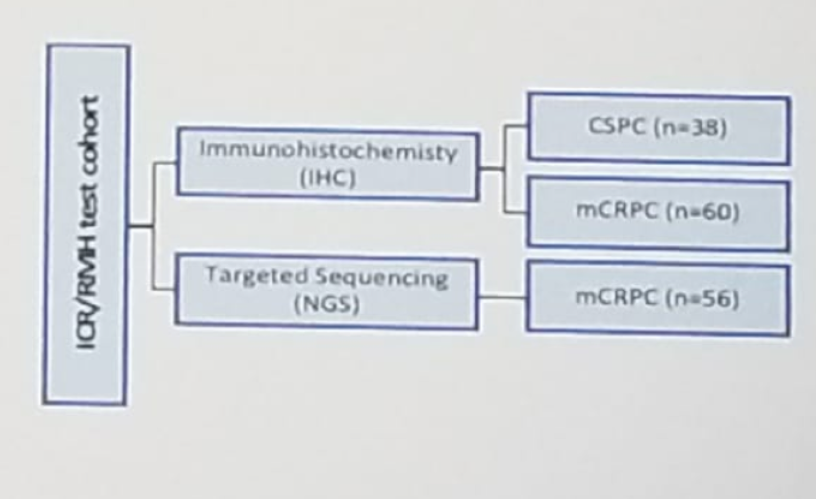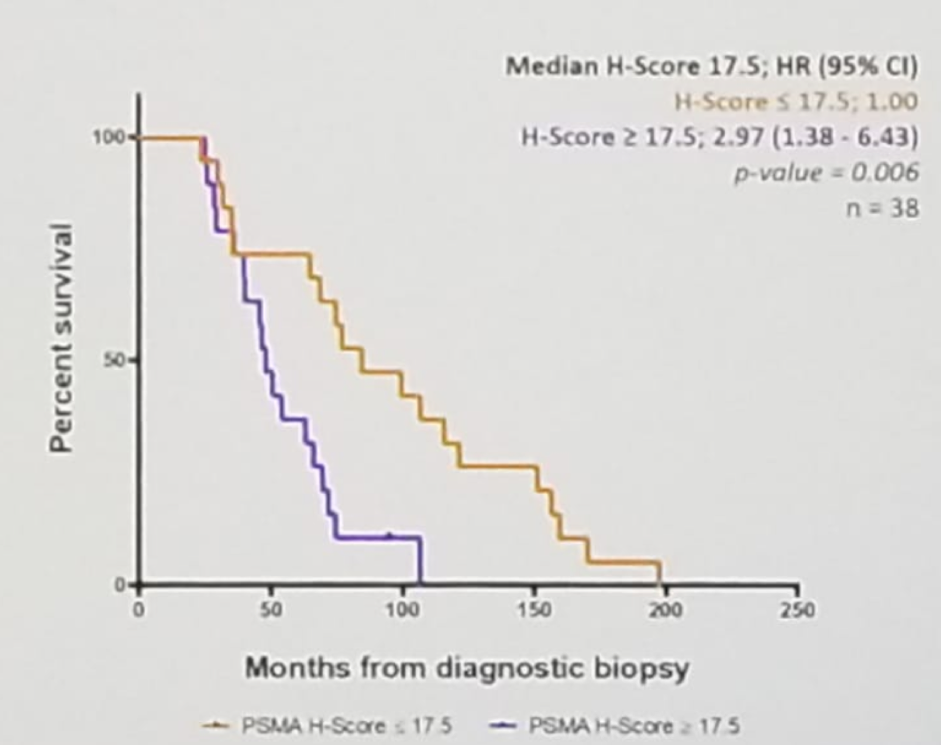PSMA is a type 2 transmembrane protein with an enzymatic function as a folate hydrolase-carboxypeptidase. It is primarily localized in five sites in the human body:
- Glial cells in the brain – Where it modulates signal transduction pathways by hydrolyzing N-acetyl aspartyl glutamate (NAAG)
- Salivary glands
- Kidney
- Small intestine – Assists in folate absorption, and removes C-terminal glutamates from dietary folates
- Prostate – Precise role is still uncertain
The authors had several hypotheses before conducting this study. These included:
- PSMA expression exhibits marked intra- and inter-patient heterogeneity, which may limit the clinical utility of PSMA-directed therapies.
- The folate-hydrolase PSMA facilitates folate transport into prostate cancer cells, and its overexpression represents an adaptive response to increased cellular requirements for folate, which is key to tumor DNA synthesis and repair.
- Cells with increased DNA synthesis/repair, such as those with deleterious DNA damage repair (DDR) aberrations, need higher levels of PSMA to acquire more folate to increase their nucleotide pool.2

The authors initially performed a retrospective pilot study, using their institutional cohort of patients. They used immunohistochemical (IHC) evaluation of membranous PSMA expression by an expert pathologist, and also used new generation sequencing and associated it with patient outcome data (Figure 2).
Figure 2 – Pilot retrospective cohort:

Later, the authors used two validation cohorts, one from their institution, and the other from the prostate cancer foundation, where they downloaded the metastatic castrate resistant prostate cancer transcriptomes and reanalyzed them. A specific anti-PSMA antibody was chosen, and its specificity was validated with western blot.
The results were quite interesting, showing significant inter- and intra-patient heterogeneity and that membranous PSMA expression at prostate cancer diagnosis was associated with worse overall survival (Figure 3). A different level of expression was seen in the same patients as they progressed from castrate sensitive to castrate-resistant prostate cancer. The authors also noticed that membranous PSMA expression in metastatic castrate resistant prostate cancer patients is associated with deleterious DNA repair aberrations.
Figure 3 – Membranous PSMA and prostate cancer overall survival:

The obvious limitations of the study were mentioned by Dr. Paschalis as well, including its retrospective nature, relatively small sample size and the difficulty they had differentiating membranous from cytoplasmic PSMA staining.
Dr. Paschalis concluded his talk stating the implications of this study. According to him, PSMA expression in prostate cancer exhibits considerable intra- and inter-patient heterogeneity, indicating that this may be dynamically regulated. Tumors with defective DDR have higher membranous PSMA expression, and thus may benefit more from PSMA-targeted therapies. The current hypothesis is that PSMA expression reflects a “stressed” phenotype, indicating a need for folate +/- glutamate. Treatments increasing this stress have utility in combination with PSMA-targeted therapies
Presented by: Alec Paschalis, MBBS BSc, Division of Clinical Studies, The Institute of Cancer Research, London, UK
Written by: Hanan Goldberg, MD, Urologic Oncology Fellow (SUO), University of Toronto, Princess Margaret Cancer Centre @GoldbergHanan at the 2019 ASCO Annual Meeting #ASCO19, May 31- June 4, 2019, Chicago, IL USA
References:


